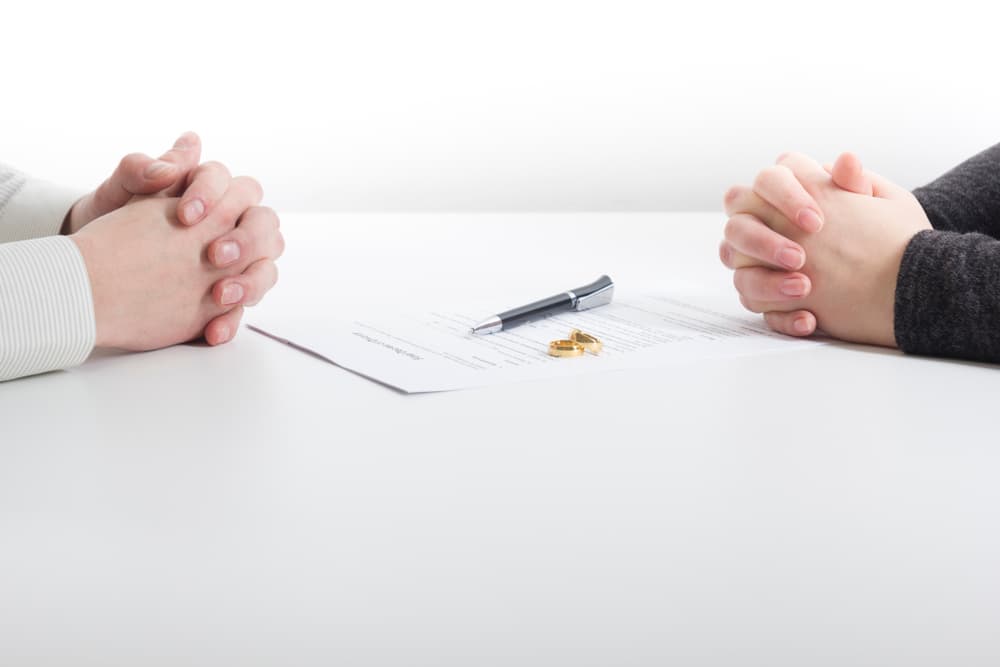Although the statistics show that many marriages end in divorce, most people never imagine it will happen to them. Going through a divorce can be an incredibly challenging and emotional time. It is natural to question the future and to wonder about the consequences of these large decisions, especially with the finality of a divorce.
If you’re considering not signing the divorce papers because you are unsure if this is what you want, it’s important to understand the potential outcome. While it is your right not to sign the papers, always remember that this might not result in the best outcome for you. The process might be delayed, or this refusal may result in a judge making decisions on your behalf that go against your future interests.
To fully comprehend the legal implications and explore all options available to you when presented with divorce papers, always consult an experienced divorce attorney. A reputable Scottsdale divorce lawyer will work alongside you from the beginning until the end of your case, providing valuable counsel throughout this difficult time so you can make the best decisions for your future.
BTL Family Law is
Here to Help
The Consequences of Not Signing the Papers
There are several reasons you may be hesitant to sign the divorce papers. Maybe you are uncomfortable with how quickly the process went and need more time to consider your options. Perhaps you are concerned about resolving the division of assets, child custody, and other important issues.
With all these considerations, it’s common to wonder what may happen if you refuse to sign divorce papers when you receive them. The consequences can vary depending on your specific circumstances, but here are some potential outcomes you should be aware of:
- Delays in the Divorce Process: By not signing the divorce papers, you often stall the process. This means the divorce proceedings cannot proceed until both parties agree and sign the necessary documents. As a result, it can prolong the emotional and financial stress associated with the divorce.
- Emotional Impact: The decision to not sign the divorce papers can also have an emotional impact on both parties involved. It can create further tension and animosity between spouses, making reaching a resolution and moving forward more difficult. You might also find that the positive relationship you maintained with your spouse up to this point begins to deteriorate. This can prolong the healing process and make it harder to co-parent or have an amicable relationship post-divorce.
- Court Intervention: If you refuse to sign the divorce papers, it does not stop the divorce from happening. Instead, the court will intervene and make decisions on your behalf, issuing a default judgment. Read on about default judgments below.
Overview of Default Judgments in Divorce
Simply put, a default judgment occurs when one party fails to respond to or participate in the divorce proceedings at any stage of the case. In these cases, the court may proceed with the divorce without the non-responsive party’s input, resulting in a default judgment.
Now, you might be wondering what exactly a default judgment means for your divorce case. Well, it essentially means that the court will make decisions on key issues such as property division, child custody, and support based on the information provided by the party who did participate in the proceedings.
This can be a disadvantage for the non-responsive party, as their preferences may not be taken into full consideration. The court will often grant the participating party’s wishes or make decisions strictly according to state law, which likely will not be in the absent party’s interests.
Default judgments are not automatic. For example, to obtain a default judgment if you refuse to sign divorce papers, your spouse must follow specific legal procedures, including properly serving the divorce papers to you and giving you sufficient time to respond. Additionally, the court will typically require evidence and documentation to support the claims they want in the default judgment.
If you do not want to sign divorce papers, seek the guidance and representation of a skilled divorce attorney. They can advise on all the implications of forgoing participation in the finalization of the case. They can also explore alternative methods of resolving the divorce, such as mediation or negotiation, to achieve a mutually satisfactory outcome.

Exploring Your Options with an Attorney
While it’s your right to decide not to sign the divorce papers, it’s important to consider the potential ramifications and impact of this decision on your future. Consulting an experienced divorce attorney allows you to understand your options and make an informed decision.
Navigating the complexities of divorce can be emotionally and legally challenging, especially when faced with refusing to sign divorce papers. In such situations, seeking the guidance of a skilled and experienced attorney can make all the difference.
A lawyer can assess your case and advise you on the best course of action. They can explain the potential consequences of refusing to sign the papers and the legal ramifications involved. Often, it is in your interests to sign the papers and maintain control over your future.
With their experience, your attorney can guide you in finding resolutions that work for you, whether that involves negotiation, mediation, or litigation. Moreover, a divorce lawyer can protect your future interests throughout the entire divorce process. They can handle all the legal paperwork and work towards achieving a fair and equitable settlement. Their legal knowledge and experience make sure you are well-informed and empowered to make the best possible decisions for your future.
Contact an Experienced Divorce Attorney Today
If you are going through a divorce and are considering not signing the divorce papers, even though your spouse already has, don’t hesitate to reach out to a dedicated divorce lawyer to get the guidance and support you need. An experienced divorce attorney understands divorce law and can provide information about your options in this situation. Contact a skilled family lawyer today and learn how they can protect your rights and advocate for your best interests throughout the divorce process.
BTL Family Law is
Here to Help
